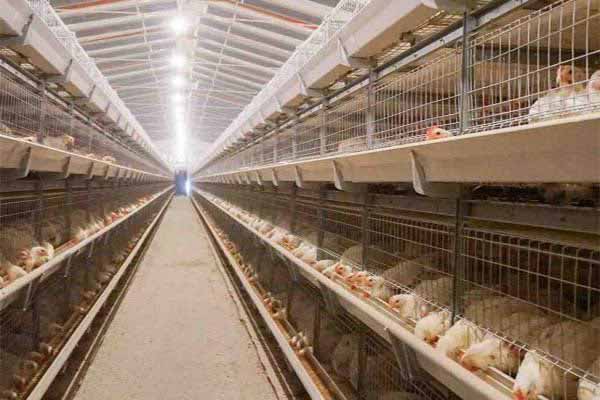Profitable Poultry Farming in Kenya: Secrets to Success
Time : 2025-05-14
Are you considering venturing into the poultry farming business in Kenya? Well, you’ve made a great choice! Kenya has a growing demand for poultry products, making it a profitable venture. However, to succeed in this field, you need to have the right knowledge and strategies. In this article, we’ll discuss some of the essential factors to consider when setting up a profitable poultry farming business in Kenya.
1. Understanding the Market
Before starting your poultry farming business, it’s essential to understand the market demand. Research the types of poultry products that are in high demand in your target market. For instance, you may consider farming chickens, ducks, turkeys, or guinea fowl. By understanding the market, you can tailor your business model to meet customer needs.
2. Choosing the Right Breed
Selecting the right breed is crucial to ensure high productivity and profitability. Different breeds have different growth rates, egg-laying capacity, and meat yield. Some popular chicken breeds in Kenya include:
– Lohmann Brown: Known for high egg production.
– Meleagrid: Excellent for meat production.
– Red Jungle Fowl: A local breed that is well adapted to the Kenyan climate.
It’s important to research the breeds and choose those that best suit your farming goals and local conditions.
3. Farm Layout and Design
Proper farm layout and design can significantly impact your poultry farming success. Here are some tips to consider:
– Biosecurity: Keep your birds healthy by minimizing contact with external pathogens. This includes having separate areas for different stages of poultry growth and preventing access by predators and wild birds.
– Ventilation: Ensure your poultry houses have adequate ventilation to provide a comfortable environment for your birds.
– Water and Feed Availability: Easy access to fresh water and a clean feed source is crucial for healthy birds.
4. Feed and Nutrition
Feeding is a significant cost in poultry farming. To maximize profitability, follow these guidelines:
– Quality Feed: Purchase high-quality feed that meets your birds’ nutritional needs. Ensure it is free from contaminants.
– feed Costs: Optimize feed costs by sourcing locally when possible and by using efficient feeding systems that reduce waste.
– Balanced Diet: Ensure your birds have a balanced diet to promote good health and maximize production.
5. Health Management
Poultry health is critical to a successful farm. Follow these health management tips:
– Vaccination: Vaccinate your birds against common diseases to prevent outbreaks.
– Regular Health Checks: Regularly check your birds for signs of illness or discomfort and seek veterinary care when necessary.
– Sanitation: Maintain high levels of hygiene in your poultry houses and surrounding areas to prevent the spread of disease.
6. Marketing and Distribution
Once you have a steady supply of poultry products, you need a solid marketing and distribution strategy:
– Local Market: Identify local markets where you can sell your products, such as restaurants, supermarkets, and small businesses.
– Value-Added Products: Consider value-added products like chicken meat packs or specialty breeds that fetch higher prices.
– E-commerce: Utilize e-commerce platforms to expand your reach and target customers outside your local area.
7. Financial Planning
Successful poultry farming requires careful financial planning:
– Budgeting: Create a detailed budget that includes all costs, from feed and labor to utilities and marketing.
– Profitability Analysis: Regularly analyze your business’s financial performance to identify areas where you can cut costs or increase revenue.
– Access to Financing: Explore options for accessing financing to grow your business, such as loans, grants, or investors.
8. Networking and Training
Networking with other poultry farmers and attending training workshops can provide valuable insights and skills:
– Industry Associations: Join local poultry industry associations to stay informed about industry trends and share experiences with fellow farmers.
– Training Programs: Participate in training programs offered by agricultural organizations, government agencies, and private institutions to enhance your knowledge and skills.
By following these steps, you’ll be well on your way to setting up a profitable poultry farming business in Kenya. Remember that success requires hard work, dedication, and a willingness to adapt to new challenges.
—












